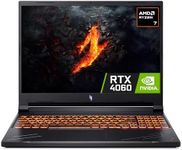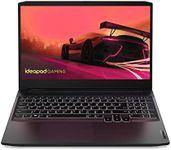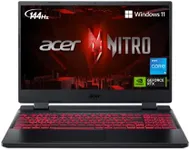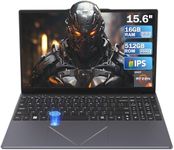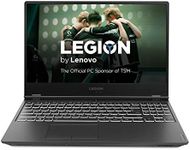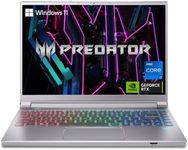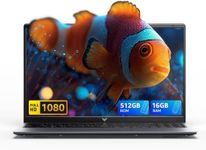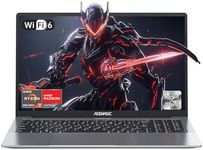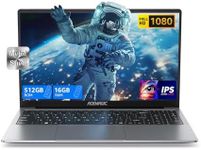Buying Guide for the Best Affordable Gaming Laptops
Choosing the right gaming laptop can be a daunting task, especially if you're looking for an affordable option. The key is to balance performance with cost, ensuring you get the best gaming experience without breaking the bank. Here are some important specifications to consider when shopping for an affordable gaming laptop, along with explanations to help you understand their significance and how to choose the right one for your needs.Graphics Card (GPU)The graphics card, or GPU, is crucial for gaming as it handles rendering images, videos, and animations. For gaming, a dedicated GPU is essential. Entry-level GPUs are suitable for less demanding games and older titles, while mid-range GPUs can handle most modern games at medium to high settings. High-end GPUs are more expensive but offer the best performance for the latest games at high settings. Choose a GPU based on the types of games you play and the level of detail you desire.
Processor (CPU)The CPU is the brain of your laptop, affecting overall performance and multitasking capabilities. For gaming, a quad-core processor is generally sufficient, but a six-core or higher can provide better performance for more demanding games and multitasking. Look for CPUs from reputable brands like Intel or AMD. If you play CPU-intensive games or plan to use your laptop for other demanding tasks, opt for a more powerful processor.
RAMRAM (Random Access Memory) is important for smooth gameplay and multitasking. For gaming, 8GB of RAM is the minimum, but 16GB is recommended for better performance and future-proofing. More RAM allows your laptop to handle more tasks simultaneously and can improve game loading times and overall responsiveness. Consider your gaming habits and whether you run multiple applications at once when deciding on the amount of RAM.
StorageStorage affects how much data you can store and how quickly your laptop can access it. SSDs (Solid State Drives) are faster than traditional HDDs (Hard Disk Drives) and can significantly reduce game loading times. A combination of both, with an SSD for the operating system and frequently played games, and an HDD for additional storage, is ideal. Choose storage based on your game library size and whether you prioritize speed over capacity.
DisplayThe display impacts your gaming experience through resolution, refresh rate, and size. A higher resolution (like 1080p) provides clearer images, while a higher refresh rate (like 120Hz or 144Hz) offers smoother gameplay. Screen size is a personal preference, with larger screens providing a more immersive experience but making the laptop less portable. Consider what balance of clarity, smoothness, and portability works best for you.
Battery LifeGaming laptops typically have shorter battery life due to their powerful components. However, longer battery life can be beneficial if you plan to use your laptop away from a power source. Keep in mind that gaming on battery power will reduce performance to conserve energy. If portability and using your laptop unplugged are important, look for models with better battery life, but always prioritize performance for gaming.
Build Quality and CoolingBuild quality affects the durability and feel of your laptop, while cooling is crucial for maintaining performance during long gaming sessions. Look for laptops with robust construction and good cooling solutions, such as multiple fans and heat pipes. Effective cooling prevents overheating, which can throttle performance and damage components. If you game for extended periods, prioritize laptops with superior cooling systems.

